COP21 - The view from Germany
German positions on the Paris Climate Summit
Contents
Paris deal fuels German coal exit debate, stirs industry concerns
The widely celebrated Paris Agreement has intensified the debate about how Germany can achieve its endangered climate targets. Most commentators and climate activists argued the results of the climate summit vindicated demands that Germany urgently needs to phase out coal. The business community was split on the future course of climate policy. Energy intensive industry groups said the deal provided no basis for more ambitious policies, and warned against dangers to competitiveness. But an alliance of major companies came forward to demand additional climate efforts. Read the article here.
Germans celebrate climate deal, turn to task ahead
German politicians, climate activists, scientists and media celebrated the "historic" Paris climate agreement. Some business associations as well as activists pointed to flaws of the deal, and most commentators agreed on the need to follow through with actions. Following is a collection of reactions out of Germany. Read the article here.
Paris climate deal – does Germany get what it hoped for?
climate deal – does Germany get what it hoped for?
196 parties of the UNFCCC have adopted the new Paris Agreement on climate change / Transparency and the ambition mechanisms that Germany most wanted to get are in the text, but the strong long-term target had to give a little. Read the factsheet here.
 13 days in Paris
13 days in Paris
CLEW's daily summary of COP21 negotiations, and news and views from the German delegation are listed here.
The making of "Climate Chancellor" Angela Merkel
Angela Merkel's long-standing engagement for emissions cuts has brought Germany's leader the nickname "The Climate Chancellor". Many hope she will do justice to this title at the summit in Paris. This factsheet provides a timeline how she developed this reputation. Read the factsheet here.
Controversial climate summit issues – positions in Germany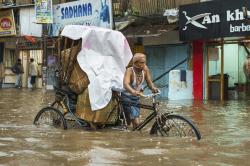
This factsheet gives an overview of the most disputed issues at the COP21 - e.g. climate finance and loss & damage - and highlights the position of the German government and civil society on these topics. Read the factsheet here.
Interviews
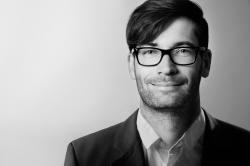 "The energy transition is not a cakewalk"
"The energy transition is not a cakewalk"
says Frederik Moch, Head of Division for Energy Policy at the German Trade Union Association (DGB). Read the interview here.
 "Next innovation wave in economy will be 'green'"
"Next innovation wave in economy will be 'green'"
says Dirk Messner, Director of the German Development Institute (DIE) and Co-Chair of the German Advisory Council on Global Change (WBGU). Read the interview here.
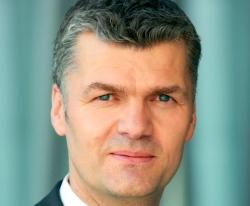 "Old business models are challenged by Energiewende"
"Old business models are challenged by Energiewende"
says Rüdiger Senft, Head of Corporate Responsibility at Commerzbank. Read the interview here.
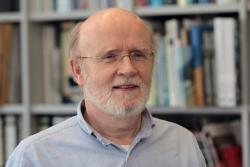 "We must err on the side of caution"
"We must err on the side of caution"
says Hans-Otto Pörtner, from the Alfred Wegener Institut, a Helmholtz centre for polar and marine research, who was elected co-chair of the IPCC Working Group II (Impacts, Adaptation, and Vulnerability) in October. Read the interview here.
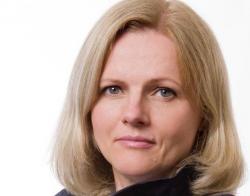 "Paris must send signal for global fossil fuel exit"
"Paris must send signal for global fossil fuel exit"
says Regine Günther, General Director Policy and Climate at WWF Germany. Read the interview here.
 "Paris must be starting point for carbon price talks"
"Paris must be starting point for carbon price talks"
says Ottmar Edenhofer, director of the Mercator Research Institute on Global Commons and Climate Change, chief economist at the Potsdam Institute for Climate Impact Research, and former co-chair of Working Group III of the IPCC. Interview here.
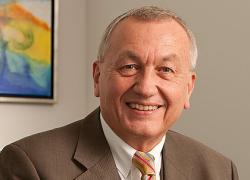 "Energy sector key to cutting CO2 but cannot do job alone"
"Energy sector key to cutting CO2 but cannot do job alone"
says Uwe Franke, President of the German Member Committee of the World Energy Council and former CEO of BP Europe. Read the interview here.
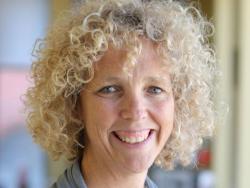 "World expects Germany to lead way with Energiewende"
"World expects Germany to lead way with Energiewende"
says Jennifer Morgan, Global Director of the Climate Program at the World Resources Institute, who also serves on the German Council on Sustainable Development. Read the interview here.
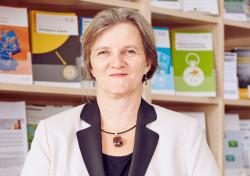 "We need a global deal and national efforts"
"We need a global deal and national efforts"
says climate scientist Daniela Jacob, who is director of the Climate Service Center Germany (GERICS) in Hamburg which offers knowledge and advice on climate change to government, administration and businesses. Read the full interview here.
 "Emissions trading is the key to climate protection"
"Emissions trading is the key to climate protection"
says Katherina Reiche, managing director of the VKU German Association of Local Utilities. Read the interview here.
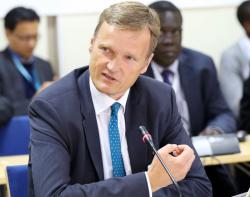 "Paris deal no guaranteed home-run"
"Paris deal no guaranteed home-run"
says Karsten Sach, Deputy Director General "European and International Policy" in the Environment Ministry who has been Germany's chief negotiator at UNFCCC climate conferences since 1999. Read the interview here.
(Photo: IISD/ENB)
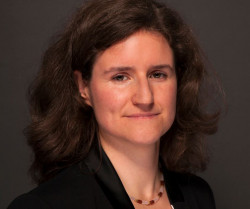 "Machinery makers to benefit from global climate deal"
"Machinery makers to benefit from global climate deal"
says Naemi Denz, member of the executive directorate of German Engineering Federation VDMA where she is in charge of technology and environment. Read the interview here.
 "Germany must commit to brown coal exit before Paris"
"Germany must commit to brown coal exit before Paris"
says Sabine Minninger, policy advisor on climate change for German aid agency Bread for the World. Since 2008, Minninger has followed the UNFCCC process together with partner organisations in the global south. Read the interview here.
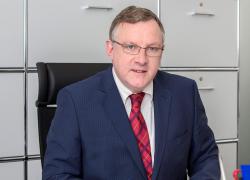 "EU must speak with one voice"
"EU must speak with one voice"
says Reimund Schwarze, professor for international environmental economics at the Helmholtz Centre for Environmental Research in Leipzig. He has done extensive research on the economy of climate change, sustainable development and climate change policy. Read the interview here.
Media commentaries
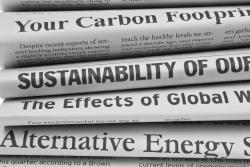 In this regularly updated factsheet, the Clean Energy Wire presents an overview of German media comments and reports on the Paris Climate Summit.
In this regularly updated factsheet, the Clean Energy Wire presents an overview of German media comments and reports on the Paris Climate Summit.
Read the factsheet here.
Background
Germany’s greenhouse gas emissions and climate targets
This factsheet gives an overview of Germany’s greenhouse gas emissions and the country's self-imposed CO2-reduction targets - read it here.
Details of Climate Action Programme
The additional measures to reduce CO2 emissions contained in the government's Climate Action Programme is aimed at bringing the country back on track to meet its target reduce CO2 emissions by 2020 by 40 percent compared to 1990. Find out more details in the factsheet here.
Climate levy – the debate and proposals for cutting CO2 emissions
After a long debate over a climate levy on old coal-fired power plants, the government opted for an alternative approach of shutting down some lignite-fired plants against payment. Media criticised the costs and some environmental groups voiced disappointment that companies were now getting money rather than paying for high emissions. Others, however, argued the deal was the first step of an eventual exit from coal-fired power generation. Read the blow-by-blow account of the climate levy saga in this article.
Attachment
Download the dossier as PDF here.

